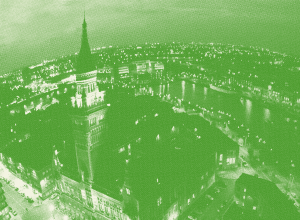The challenge
Committed to sustainable development and ecological transition, the urban community of Dunkerque aims to divide its greenhouse gas emissions by four by 2050. One of the challenges was to find a sustainable and economical solution for heating various facilities (city hall, swimming pool, university, shopping center) and thousands of homes.
The solution
The proximity of ArcelorMittal's blast furnaces, the largest steel mill in France, presented an opportunity for Dalkia's teams. The steelmaker's industrial process produces a great deal of heat, previously unrecovered: waste heat.
Dalkia therefore chose a system based on the recovery of industrial heat to heat water and then inject it into the 40-kilometre-long district heating network.
This system supplies the city hall, an Olympic-size swimming pool, the university, a shopping center and thousands of homes. In the future, the heating network should be extended to supply more buildings.
The benefits
- The recovery of waste heat avoids the use of fossil fuels and reduces greenhouse gas emissions.
- As a bonus, the cost related to the heating of housing has been reduced for the occupants compared to systems using gas or oil.
- The recovery of a local energy is part of a circular economy logic.
For Dunkerque, being innovative means supporting its industry to enable it to evolve into the 21st century. It also means adapting it to the energy transition so that it remains competitive.

Patrick Vergriete,
Mayor of Dunkerque and President of the Urban Community
The project in figures
20,000 tons
CO2 emissions avoided each year through the recovery of waste heat, equivalent to taking 10,000 cars off the road
15 to 20%
Savings on heating bills for residents
6,000
Number of homes connected to the heating network
Embark on your energy transition
The energy transition is our profession, and we are committed to your satisfaction.
Discover all our offers tailored to your success.
